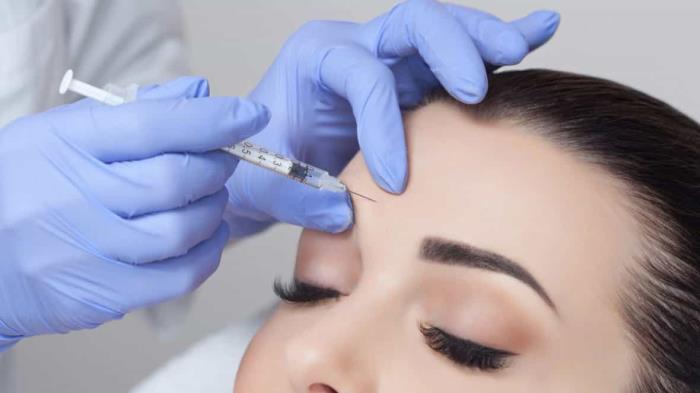Cosmetic surgery, like any medical procedure, is subject to various legal and ethical considerations aimed at protecting patient safety and ensuring that practitioners maintain professional integrity. These considerations encompass a wide range of issues, including patient consent, surgeon qualifications, the marketing of cosmetic procedures, and the ethical responsibilities of both surgeons and clinics.
The nature of cosmetic surgery, often elective and primarily focused on enhancing appearance, brings unique challenges. Surgeons must balance the patient's desires with realistic expectations, ensuring that all procedures are performed in accordance with both legal standards and ethical guidelines. Understanding these factors is crucial for both patients and practitioners in the cosmetic surgery industry.
Informed Consent: Ensuring Patient Rights
Informed consent is a critical aspect of cosmetic surgery, ensuring that patients fully understand the risks, benefits, and potential outcomes of a procedure before agreeing to undergo it. This process involves a comprehensive discussion between the patient and the surgeon, covering all relevant details, including alternative treatments and the likelihood of achieving the desired result.

By providing informed consent, patients can make educated decisions about their procedures while ensuring their rights are respected. Surgeons are ethically obligated to offer clear, truthful information and ensure that patients do not feel coerced into making a decision. Informed consent protects both the patient and the practitioner, establishing a foundation of trust and transparency.
Ethical Responsibilities of Cosmetic Surgeons
Cosmetic surgeons bear significant ethical responsibilities to ensure that they act in the best interests of their patients. This includes being honest about the limitations of cosmetic procedures, managing patient expectations, and declining to perform surgeries that may be unnecessary or harmful. Surgeons must prioritize patient well-being over financial incentives, upholding professional standards and ensuring that all procedures are performed for the right reasons.
Furthermore, cosmetic surgeons are tasked with maintaining patient confidentiality, ensuring safe surgical environments, and adhering to the latest medical guidelines and standards. Fostering a strong ethical practice not only safeguards patient trust but also contributes to the surgeon’s professional reputation and the broader field of cosmetic surgery.
The Role of Patient Autonomy in Cosmetic Procedures
Patient autonomy is a fundamental principle in healthcare, including cosmetic surgery, where patients have the right to make their own decisions about their bodies and treatments. In cosmetic procedures, this autonomy means that individuals are free to choose the surgeries they want, provided they are fully informed and understand the risks involved. Surgeons must respect these choices, even if they personally disagree with them, as long as the requested procedure is safe and ethical.
However, patient autonomy must be balanced with professional judgment. Surgeons are responsible for advising patients on the risks and benefits of procedures, and they have the right to refuse performing surgeries that they believe would cause harm or lead to unrealistic results.
Legal Regulations Governing Cosmetic Surgery Practices
Cosmetic surgery is regulated by a combination of national and regional laws designed to protect patient safety and ensure the quality of care. These regulations cover various aspects, including licensing requirements for surgeons, the safety standards of surgical facilities, advertising practices, and the handling of patient information. In many countries, cosmetic surgeons must be board-certified and meet specific educational and training standards before they can legally perform procedures.
In addition to general healthcare regulations, specific laws may apply to the advertising and marketing of cosmetic surgery, ensuring that patients are not misled by unrealistic promises or unverified results. These legal frameworks are in place to safeguard patients and maintain the integrity of the cosmetic surgery profession.
Common Ethical Dilemmas in Cosmetic Surgery
Cosmetic surgeons often face ethical dilemmas, such as balancing patient desires with medical advice and determining whether a procedure is genuinely beneficial. Surgeons must navigate these challenges while upholding the principles of patient safety and well-being.
Addressing Unrealistic Expectations in Cosmetic Surgery
Managing patients with unrealistic expectations is a critical ethical responsibility in cosmetic surgery. Surgeons must provide clear and honest communication about the potential outcomes, risks, and limitations to ensure that patients are making informed decisions.

Advertising and Marketing Ethics for Cosmetic Surgeons
Ethical advertising is vital in cosmetic surgery, as misleading or exaggerated claims can set unrealistic expectations. Surgeons should focus on providing transparent, evidence-based information in their marketing practices to promote responsible patient decision-making.
The Importance of Transparent Communication with Patients
Transparent communication is essential for building trust between cosmetic surgeons and their patients. Full disclosure of potential risks, alternatives, and expected results allows patients to make informed decisions and reduces the likelihood of dissatisfaction or legal issues.
Handling Complications and Medical Malpractice in Cosmetic Surgery
When complications arise, ethical surgeons must prioritize patient care, provide timely interventions, and offer support. Openly addressing medical errors and accepting accountability helps maintain patient trust and upholds professional standards.
Ethical Issues Surrounding Elective Cosmetic Procedures
Elective cosmetic procedures raise ethical concerns, such as whether surgeries are necessary or driven by societal pressures. Surgeons must ensure that patients seek these procedures for the right reasons and assess their physical and mental health to avoid unethical practices.
The Psychological Impact of Cosmetic Surgery: Legal and Ethical Concerns
Cosmetic surgery can significantly affect a patient's mental health. Surgeons must consider the psychological implications of their work and ensure that patients are mentally prepared for the changes surgery will bring. Legal and ethical protocols should safeguard patients' mental well-being.
Patient Safety Protocols in Cosmetic Surgery
Maintaining high patient safety standards is critical in cosmetic surgery. Surgeons should follow evidence-based practices, monitor post-operative care, and ensure a sterile environment to reduce risks, ensuring that patient welfare is always a top priority.
Consent for Underage Cosmetic Surgery: Legal Requirements
Surgeons face legal and ethical challenges when performing cosmetic surgery on minors. Consent from guardians and a thorough evaluation of the patient’s maturity and motivations are essential to ensure that the procedure aligns with the best interests of the underage patient.
The Role of Medical Boards in Overseeing Cosmetic Surgery Practices
Medical boards play a critical role in regulating cosmetic surgery practices, ensuring that surgeons adhere to ethical guidelines, patient safety standards, and legal requirements. Oversight by these boards helps protect patients and maintain the integrity of the profession.
Cross-Border Cosmetic Surgery: Legal Implications and Risks
Patients seeking cosmetic surgery abroad face legal and medical risks, such as differing regulatory standards and inadequate post-operative care. Cross-border procedures can complicate liability issues, making it harder to seek redress if complications arise, emphasizing the need for thorough research before proceeding.
The Impact of Social Media on Cosmetic Surgery Ethics
Social media plays a powerful role in shaping public perceptions of cosmetic surgery, often glorifying unrealistic results. Surgeons have an ethical responsibility to ensure that their online presence reflects accurate, responsible information and does not exploit patient vulnerabilities for marketing purposes.
Managing Post-Surgical Outcomes and Legal Liabilities
Complications or unsatisfactory results can lead to legal claims against surgeons. It is vital for cosmetic surgeons to manage post-surgical outcomes through transparent communication, thorough documentation, and offering realistic expectations to minimize legal risks and protect patient interests.
Ethical Considerations for Non-Surgical Cosmetic Procedures
Non-surgical cosmetic procedures, like fillers or Botox, carry their own ethical challenges. Surgeons must avoid over-treatment and ensure that patients are aware of the risks and limitations, maintaining professional integrity and prioritizing patient health over profit-driven decisions.
Exploring the Latest Techniques in Full Body Lift Surgery
Discover the most recent advancements in full body lift surgery techniques. These innovations aim to enhance patient outcomes by minimizing scarring, reducing recovery times, and improving overall results, providing patients with a more comprehensive approach to body contouring after significant weight loss or aging.
Best Full Body Lift Surgery Treatment in India
The Best Full Body Lift Surgery Treatment in India is performed by expert surgeons who utilize advanced techniques to ensure optimal outcomes for patients, offering a personalized treatment plan tailored to individual health needs.
Best Full Body Lift Surgery Hospitals in India
The Best Full Body Lift Surgery Hospitals in India are equipped with cutting-edge technology and facilities, providing top-notch care, including pre-surgery consultations, surgical expertise, and post-operative recovery support to ensure a smooth patient journey.
Full Body Lift Surgery Cost in India
When considering the Full Body Lift Surgery Cost in India, patients benefit from affordable and transparent pricing at leading hospitals, which offer cost-effective treatment options without compromising the quality of care.
Best Full Body Lift Surgery Doctors in India
The Best Full Body Lift Surgery Doctors in India are highly experienced in performing the surgery, utilizing a patient-centric approach that ensures personalized care, precise surgical techniques, and dedicated follow-up care to enhance recovery.
FAQs About the Legal and Ethical Aspects of Cosmetic Surgery
1. What are the legal protections for patients undergoing cosmetic surgery?
Patients are entitled to informed consent, quality care, and the ability to seek compensation for malpractice. Laws vary by country, so patients should understand their rights before surgery.
2. How do surgeons address ethical dilemmas related to patient expectations?
Surgeons use transparent communication, thorough consultations, and psychological assessments to manage patient expectations ethically, avoiding unnecessary or harmful procedures.
3. What legal risks are associated with cosmetic surgery tourism?
Cosmetic surgery tourism can expose patients to risks such as unregulated practices, poor post-operative care, and limited legal recourse if complications occur.
4. Are there ethical concerns related to social media marketing of cosmetic surgery?
Yes, cosmetic surgeons must avoid misleading advertisements and ensure that social media marketing does not exploit patients’ emotional vulnerabilities or promote unrealistic outcomes.
5. How do medical boards regulate the ethics of cosmetic surgeons?
Medical boards enforce guidelines related to patient safety, informed consent, and advertising standards to ensure surgeons adhere to ethical and legal practices in their field.